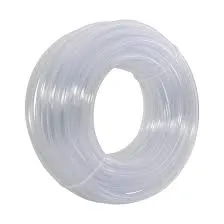Oct . 22, 2024 03:56 Back to list
High-Density Polyethylene Pipes for Agricultural Irrigation and Water Management Solutions
The Advantages of HDPE Agriculture Pipes
In modern agriculture, efficient irrigation and water management are crucial for enhancing crop yield and sustaining farming practices. One solution that has gained significant attention in recent years is the use of High-Density Polyethylene (HDPE) pipes. These pipes have revolutionized the way we approach water delivery systems in agricultural settings. This article delves into the advantages of HDPE agriculture pipes, highlighting their benefits, applications, and environmental impact.
What is HDPE?
High-Density Polyethylene (HDPE) is a thermoplastic polymer made from petroleum. It is known for its high strength-to-density ratio, making it a versatile material used in various industries, including agriculture. In agricultural applications, HDPE pipes are predominantly used for irrigation systems, drainage, and other water conveyance solutions.
Advantages of HDPE Agriculture Pipes
1. Durability and Longevity One of the foremost advantages of HDPE pipes is their durability. They are resistant to corrosion, chemicals, and UV radiation, which makes them suitable for a wide range of environments—from acidic soils to saltwater conditions. HDPE pipes can last over 50 years with proper installation, reducing the frequency of replacements.
2. Flexibility and Ease of Installation HDPE pipes are lightweight and flexible, making them easy to transport and install. Their flexibility allows them to withstand soil shifting, which is essential in agricultural fields that undergo various environmental changes. The installation process is typically quicker than traditional pipes, reducing labor costs and time.
3. Cost-Effectiveness Though the initial investment might be slightly higher than some traditional materials, HDPE pipes can lead to significant savings over time. Their longevity reduces the need for frequent replacements, and the lower maintenance costs make them a financially sound choice for farmers. Additionally, their efficiency in water delivery can lead to lower water usage and reduced utility bills.
hdpe agriculture pipe

4. Improved Water Management Effective irrigation systems are essential for maximizing crop production. HDPE pipes offer an efficient method for delivering water directly to the root zone of plants, reducing evaporation and runoff. This precision watering minimizes waste and optimizes the use of available water resources. Farmers can use HDPE pipes for drip irrigation systems, which are known to be one of the most efficient forms of irrigation.
5. Environmental Benefits As water scarcity becomes a growing concern in many regions, the use of HDPE pipes aligns with sustainable agricultural practices. Their efficiency in water delivery not only conserves water but also reduces the energy needed to pump water, thereby decreasing the carbon footprint of agricultural operations. Additionally, HDPE is recyclable, further contributing to environmental sustainability.
6. Resistance to Blockages HDPE pipes have a smooth internal surface that minimizes the risk of blockages, a common issue with traditional materials. This smoothness promotes better flow rates and reduces the need for frequent cleaning and maintenance.
Applications in Agriculture
The applications of HDPE pipes in agriculture are varied. They are commonly used for
- Drip Irrigation Systems These systems deliver water directly to the roots, ensuring efficient water usage. - Main and Secondary Irrigation Lines HDPE pipes can serve as main lines to transport water from the source to various parts of a farm. - Drainage Systems They are also effective for subsurface drainage systems, helping to manage excess water in fields. - Rainwater Harvesting Systems HDPE can be used to build efficient rainwater collection systems, which are increasingly important in water-scarce regions.
Conclusion
In conclusion, HDPE agriculture pipes represent a significant advancement in water management and distribution within the agricultural sector. Their durability, flexibility, cost-effectiveness, and environmental benefits make them an ideal choice for modern farming practices. By adopting these advanced solutions, farmers can enhance productivity while contributing to sustainable agricultural practices that prioritize resource conservation and environmental stewardship. As the agricultural industry continues to evolve, HDPE pipes will likely play a pivotal role in shaping the future of efficient farming practices.
-
Premium PVC Soft Sheets: Clear, Flexible & Durable
NewsAug.12,2025
-
Premium PVC Round Rods: Durable, Chemical Resistant, Easy to Machine
NewsAug.11,2025
-
PP U-channel: Chemical-Resistant, Lightweight & Durable
NewsAug.10,2025
-
Transparent PVC Pipe: Clear Flexible Tubing for Fluids
NewsAug.09,2025
-
Durable PP Rigid Sheet: Versatile & High-Quality Plastic Panels
NewsAug.08,2025
-
Premium Glossy PP Rigid Sheet – Durable & Versatile
NewsAug.07,2025

